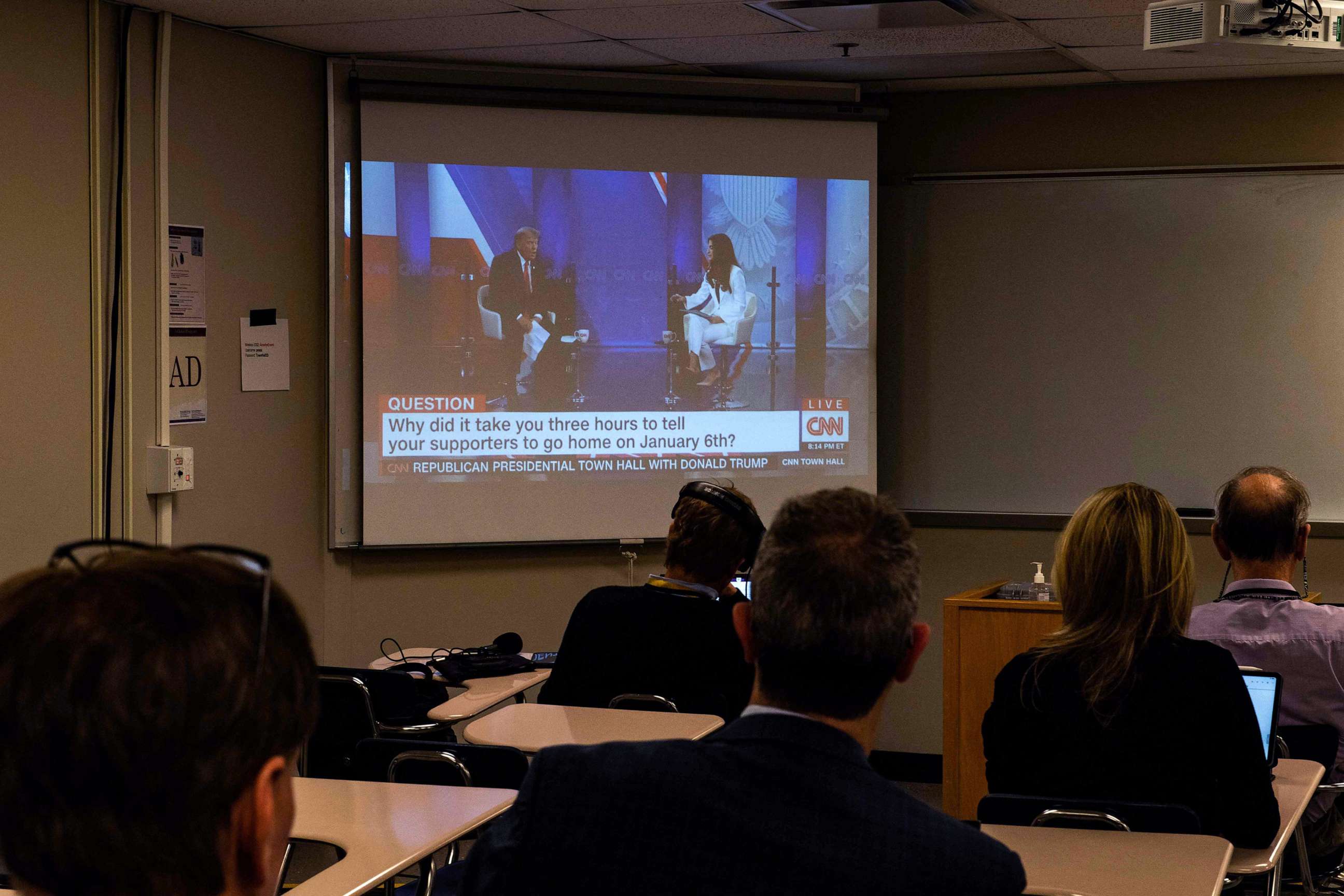NH woman who asked Trump about abortion at town hall: 'He didn't actually answer me'
As New Hampshire Republican voters cheered on former President Donald Trump at CNN's town hall Wednesday night, there was one questioner who stood out.
Julie Miles, a registered nurse for more than 20 years, living in Merrimack, New Hampshire, wanted to know how Trump felt about abortion rights after the Supreme Court overruled decades of precedent in the landmark case Dobbs v. Jackson Women's Health Organization.
A registered Republican, Miles had voted for Trump twice but was now undecided. She doesn't chalk up her indecision to the abortion issue -- "I'm not a one-issue voter," she told ABC News in an interview Thursday. But, Miles said, she thinks Republican candidates should make clear where they stand given the stakes involved.
So, with the president in front of her, Miles stood up and asked a question she said was on behalf of the millions of women voters out there she said would be wondering the same thing: "How do you plan to appeal to women voters in New Hampshire who are concerned about the Dobbs decision and how states may change their laws?"

It's one of many questions expected to follow Trump and other Republican candidates into 2024, including whether a future GOP president would embrace a proposed nationwide 15-week ban on abortion, what medical conditions qualify as a life-saving emergency, and if a woman in her third trimester should be forced to carry to term a non-viable pregnancy.
When confronted by Miles, Trump called it a "great question" -- then dodged in answering it.
The former president took credit for nominating Supreme Court justices who delivered the Dobbs decision, saying he gave the anti-abortion rights movement "something to negotiate with" and that he was able to pull off what other Republican presidents couldn't.
"Deals are being made. Deals are going to be made," Trump told Miles.

Trump also falsely accused Democrats of wanting to "rip the baby out of the womb at the end of the ninth month" -- a mischaracterization of the Democratic position on abortion. Last year, Senate Democrats tried to push a constitutional standard that allows states to restrict abortions after a fetus is likely to survive outside the womb, but with exceptions for risks to maternal life or health.
At one point, the former president did note that he believed in exceptions to abortion restrictions for anyone who is a victim or rape or incest or if their life is at risk.
But when pressed by CNN's Kaitlan Collins, the moderator, on whether he would sign legislation imposing a 15-week federal ban on abortion, Trump repeatedly wouldn't answer.
"What I'll do is negotiate so that people are happy," he said.
That answer left Miles unsatisfied.
"He didn't actually answer me," she later told ABC News.
Advocates on both sides didn't seem satisfied either. NARAL Pro-Choice America accused him of "barely obscuring his dangerous political positions," while a prominent anti-abortion rights group said it wants a candidate who will commit to a federal ban of 15 weeks with the option for states to enact tougher restrictions.
"We’re looking for a leader on life. Someone who will commit to being a national defender of life and as part of that commitment they need to support" the 15-week standard, said E.V. Osment, vice president of communications for SBA Pro-Life America.
But Republicans could risk alienating independent and moderate voters that don't embrace a federal ban. According to an ABC News\Washington Post poll released Tuesday, 78% of Americans say the decision to have an abortion should be left up to a woman and her doctor rather than regulated by law. Among women, that sentiment is particularly strong: 71% of women say they oppose the Dobbs ruling.
For Miles, she said she sees abortion as "a very personal decision between a doctor, a woman and her family" and says "the bottom line is the federal government should not dictate" that decision. And, she said, she's also hoping New Hampshire GOP Gov. Chris Sununu might jump in the race. Sununu backed a 24-week ban on most abortions with the exception of fatal fetal abnormalities -- a law that essentially allows the vast majority of abortions to occur up until the point of fetal viability.
How might other women see Trump's response? What would another Trump term mean when it comes to abortion?
"They'd still have the same question," Miles said.



